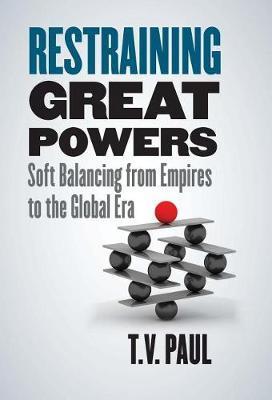Restraining Great Powers

Restraining Great Powers
This does not mean balance-of-power politics is dead, argues renowned international relations scholar T. V. Paul; instead it has taken a different form. Rather than employ familiar strategies such as active military alliances and arms buildups, leading powers have engaged in "soft balancing," which seeks to restrain threatening powers through the use of international institutions, informal alignments, and economic sanctions. Paul places the evolution of balancing behavior in historical perspective, from the post-Napoleonic era to today's globalized world. This book offers an illuminating examination of how subtler forms of balance-of-power politics can help states achieve their goals against aggressive powers without wars or arms races.
Descrierea produsului
This does not mean balance-of-power politics is dead, argues renowned international relations scholar T. V. Paul; instead it has taken a different form. Rather than employ familiar strategies such as active military alliances and arms buildups, leading powers have engaged in "soft balancing," which seeks to restrain threatening powers through the use of international institutions, informal alignments, and economic sanctions. Paul places the evolution of balancing behavior in historical perspective, from the post-Napoleonic era to today's globalized world. This book offers an illuminating examination of how subtler forms of balance-of-power politics can help states achieve their goals against aggressive powers without wars or arms races.
Detaliile produsului












